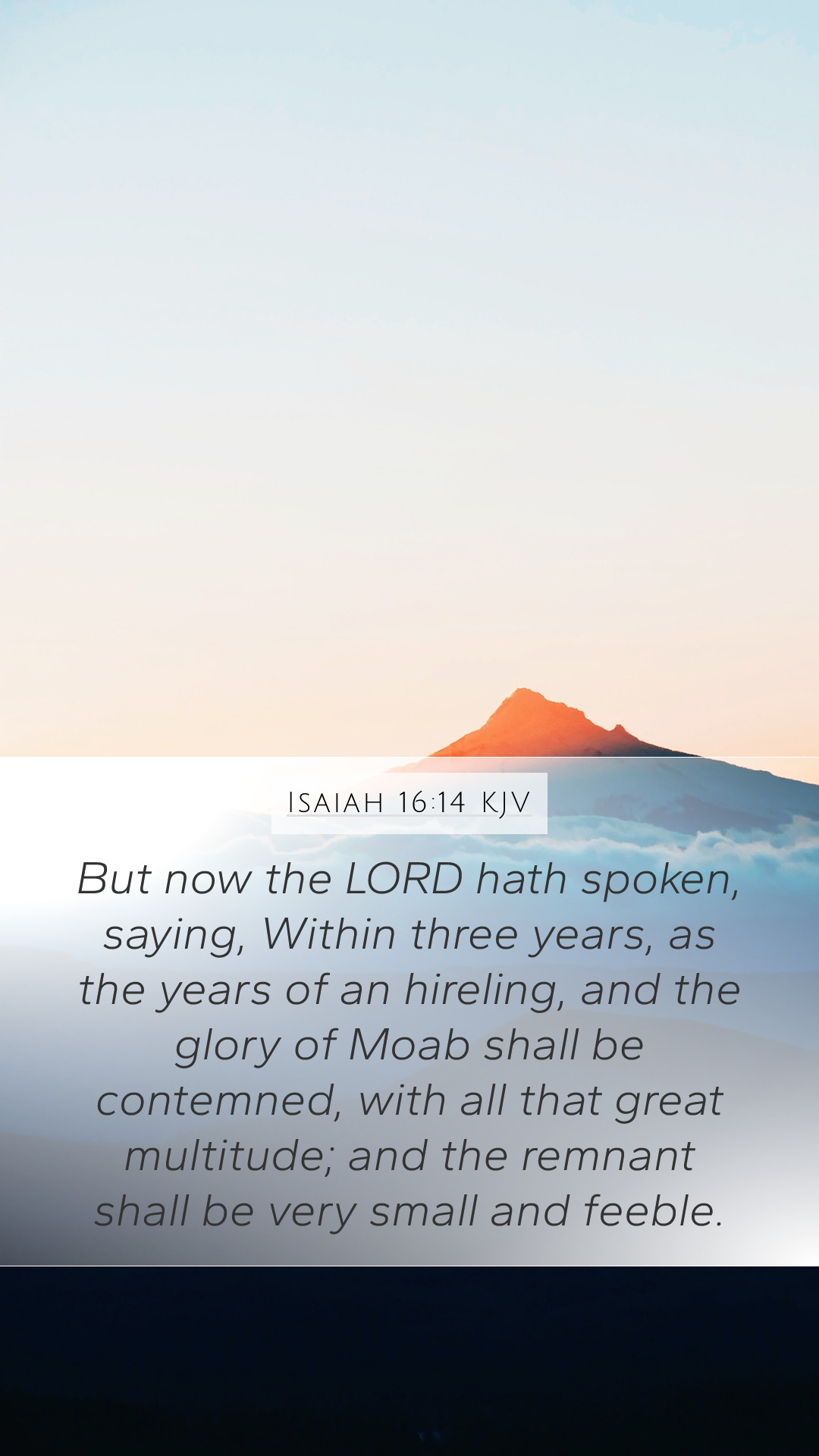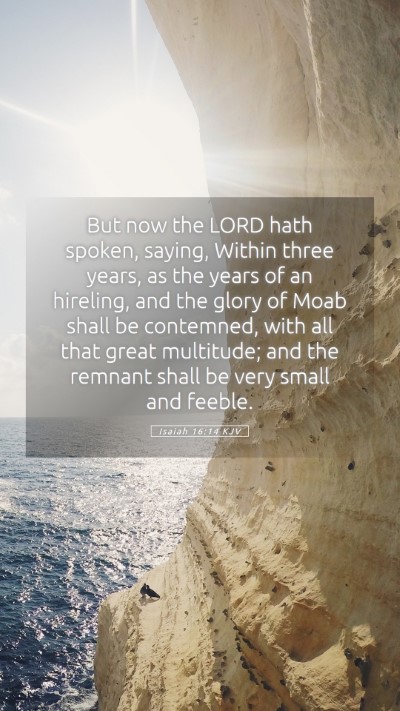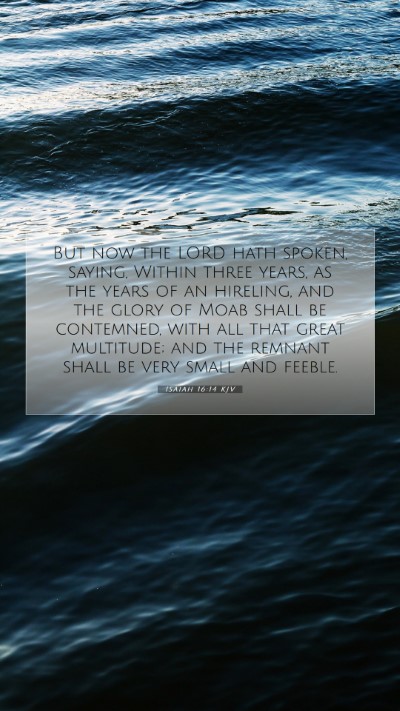Bible Verse Meaning and Commentary for Isaiah 16:14
The verse Isaiah 16:14 states: "But now the Lord has spoken, saying, 'Within three years, as the years of a hired worker, the glory of Moab will be brought into contempt, in spite of all his great multitude, and those who remain will be very few and feeble.'"
This verse is deeply embedded in the prophetic literature of Isaiah, highlighting themes of judgment, prophecy, and divine sovereignty. As we explore the meaning of Bible verses, it is essential to delve into the context and implications of this passage.
Context of Isaiah 16:14
To fully grasp the Bible verse interpretations of Isaiah 16:14, understanding its historical context is crucial. Here, the prophet Isaiah addresses Moab, a neighboring nation of Israel, which at the time faced impending judgment from God. As noted in various Bible study resources, Moab's reliance on their strength and multitude is met with divine prophecy of decline.
Interpretation by Matthew Henry
Matthew Henry offers an insightful perspective on this verse. He emphasizes that God's proclamation regarding Moab reveals both His authority and the fragility of human power. The "three years" symbolizes a precise timeline, suggesting that God’s judgment is certain and imminent. The glory of Moab, defined by its wealth and military strength, will fade, illustrating the futility of relying on external might rather than on God. Such insights align with the Biblical exegesis principles, showcasing how prophetic declarations serve both as warnings and as avenues for repentance.
Insights from Albert Barnes
Albert Barnes expands upon Isaiah's message, articulating that the prophecy not only pertains to Moab’s immediate fate but also serves as an archetype for nations that oppose God. He points out that the description of the “few and feeble” remaining highlights the inevitable downfall of those who do not heed God's warnings. Barnes draws parallels to various instances within scripture where nations are judged, reinforcing the significance of biblical prophecy and God's overarching plan for humanity. These themes resonate through many Bible study topics, encouraging believers to reflect on their integrity and reliance on God.
Analysis by Adam Clarke
Adam Clarke's commentary provides detailed insights into the socio-political implications of Moab's collapse. He articulates that Moab sought refuge in alliances and military strength, yet found ultimate vulnerability. Clarke highlights that the context of the prophecy serves as a stark reminder of God's supremacy over nations. He further notes that the scarcity resulting from this judgment indicates a call to repentance and recognition of God's glory. His analysis prompts readers to consider the application of Bible verses to daily life, urging believers to trust in God rather than their own capabilities.
Key Themes in Isaiah 16:14
- Judgment: The prophetic declaration serves as a warning about the consequences of sin and rebellion against God.
- Temporal Power: Human strength and wealth are depicted as transient, a recurring theme in scripture that underscores the nature of divine justice.
- Divine Sovereignty: The passage demonstrates God's ultimate control over nations and history, reassuring believers of His unfailing plan.
Cross References
- Jeremiah 48: Provides further insight into the fate of Moab and God’s judgment.
- Ezekiel 25:8-11: Discusses judgment against various nations, including Moab.
- Isaiah 15: Contextualizes the plight of Moab before God's judgment is pronounced.
Application for Today
Readers seeking Bible study insights from Isaiah 16:14 can apply the lessons of judgment and reliance on God in their daily lives. This passage serves as a solemn reminder to evaluate what one places their trust in, be it political power, financial security, or personal strength. Believers are encouraged to prioritize their relationship with God, live righteously, and heed the warnings of Scripture.
Conclusion
In conclusion, understanding this Bible verse commentary illuminates the complexities of divine judgment and mercy. Isaiah 16:14 is not merely a historical account but holds timeless relevance, urging contemporary readers to reflect on their fidelity to God amidst a world rife with temptations and distractions. The enduring message of this prophecy beckons audiences to embrace hope through dependence on God alone.


